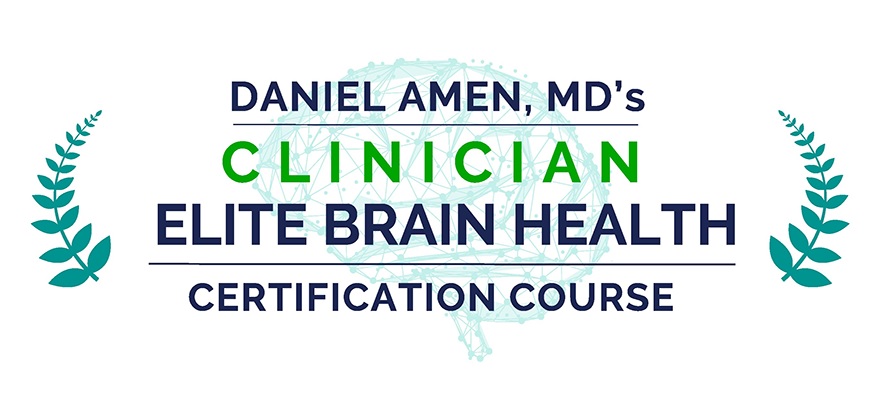
Clinicians are facing something of a paradox. There has never been more information available about the brain, yet many appointments still come down to short visits, symptom checklists, and a narrow set of treatment options. Brain health certification programs promise a different angle. They offer a way to connect neuroscience, lifestyle medicine, and clinical judgment so you can treat the brain as an organ, not just a source of symptoms.
Here we walk through what brain health certification for clinicians usually includes, how it fits inside real world practice, and the kinds of changes it can realistically support in your work with patients.
Contents
What Brain Health Certification For Clinicians Actually Is
Brain health certification for clinicians is advanced training that focuses on assessing and supporting the brain as the central driver of mental health, cognition, and behavior. Unlike general wellness courses, these programs are designed for licensed providers and assume you already know how to diagnose, prescribe, and document.
How It Differs From General Brain Health Courses
Many brain themed trainings are aimed at the public or at coaches. They highlight lifestyle tips, mindset shifts, and simple educational models. Clinical certifications go further. They address risk factors that shape brain function, patterns across diagnoses, and how to translate brain related findings into structured treatment plans that respect medical and ethical standards.
In other words, the focus is not only on what keeps a brain healthy, but also on how you integrate that knowledge when you sit across from a patient with depression, ADHD, anxiety, trauma history, cognitive complaints, or several of these at once.
Who These Programs Are Designed For
Most brain health certifications for clinicians are restricted to licensed professionals such as physicians, nurse practitioners, physician assistants, psychologists, counselors, and clinical social workers. Some also accept pharmacists, dietitians, and rehabilitation professionals who work in brain related settings.
The assumption is that participants already understand core clinical skills. The certification adds a lens and a toolkit, it does not replace the foundation of your original training or license.
Core Components Of Brain Health Clinician Training
Programs vary in style, but several content areas appear again and again. When you look under the hood, most serious certifications are built around a handful of pillars.
Applied Neuroscience For Everyday Practice
First, you can expect a structured review of practical neuroscience. This usually covers brain systems involved in mood, attention, impulse control, memory, and fear, and how they interact with each other. The goal is not to turn you into a researcher. The goal is to help you link common clinical presentations to underlying brain processes in a more concrete way.
For example, you may spend time on how frontal lobe function affects planning and inhibition, how limbic circuits relate to emotional reactivity, and how networks involved in default mode activity can be overactive in rumination. These concepts then become part of how you think about case formulation.
Risk Factor Frameworks And Assessment
Another major pillar is structured assessment of brain related risk factors. Rather than treating head injuries, sleep problems, substance exposure, metabolic disease, and chronic stress as side notes, training programs tend to organize these into clear frameworks.
The intent is to make sure you ask better questions. Have there been concussions. How consistent is sleep. Are there vascular or inflammatory conditions that might affect cerebral blood flow. Does the person have a history of childhood adversity that has left a biological imprint. With a framework in mind, you are less likely to miss crucial drivers of the current presentation.
Imaging And Other Objective Data
Some brain health certifications also include education on neuroimaging, either structural, functional, or both, along with neurocognitive testing and relevant laboratory markers. These sections do not make you a radiologist, but they help you interpret common patterns and understand when additional data might change management.
Equally important, you learn how to avoid over interpreting data. Imaging and lab results are presented as pieces of a larger puzzle, not as oracles that replace clinical judgment.
Nutrition, Lifestyle, And Integrative Strategies
Almost all brain health training emphasizes the role of lifestyle and environment. You review evidence on dietary patterns that support cognitive function, common nutrient deficiencies that influence mood and attention, and the impact of physical activity, sleep, and stress management on the brain.
You also see how these factors interact with standard treatments. For instance, how poor sleep can blunt response to antidepressants, or how unaddressed heavy alcohol use can sabotage nearly any intervention. The emphasis is on using these insights to build more coherent, layered treatment plans.

How Brain Health Training Fits Into Clinical Workflow
Even if the content is compelling, a practical question remains. How does this fit in a clinic schedule that already feels tight. The better programs address this head on and teach you how to apply brain health concepts in realistic ways.
Shaping Intake And Follow Up Visits
One of the first shifts is in how you structure assessment. Instead of adding an extra hour to every evaluation, you learn to fold brain relevant questions into what you already do. That might mean adding a short risk factor checklist, using specific questions about head trauma and sleep, or integrating a brief cognitive screen when patients report fog, poor focus, or memory lapses.
In follow up visits, you can track a small set of brain health targets along with symptoms. For example, you might monitor sleep efficiency, movement frequency, or adherence to key nutrition changes alongside mood and anxiety scales. This keeps brain support visible without consuming the entire appointment.
Building Structured Care Plans
Brain health certification also influences how you write care plans. Instead of a short list of medications and vague lifestyle suggestions, you are encouraged to think in categories. For each patient you consider pharmacologic strategies, psychotherapeutic approaches, brain related lifestyle changes, and when appropriate, referrals for further workup.
Writing plans this way does not take much more time once the habit is in place, yet it signals to both you and the patient that brain health is part of treatment, not an optional extra.
Using Educational Tools With Patients And Families
Good certification programs usually give you handouts, diagrams, and simple metaphors you can use in the exam room. You learn to explain why sleep matters for emotional regulation, why blood sugar swings affect irritability, or how chronic stress reshapes circuits involved in fear and focus.
Patients and families often respond well to this kind of explanation. It moves the conversation away from blame and toward problem solving. Instead of, you need to try harder, the message becomes, here is how we can support your brain so these changes feel more possible.
Benefits And Limits Of Brain Health Certification
No training solves everything, and brain health education is no exception. It is helpful to be clear about what it can realistically provide and where its borders are.
Where It Adds The Most Value
Clinicians often report several consistent benefits from serious brain health training:
- Better case formulations: You see patterns more clearly and can explain complex presentations with more nuance.
- More personalized treatment plans: You match strategies to risk factors and brain related patterns, instead of relying solely on diagnosis based algorithms.
- Improved patient engagement: Patients who understand the brain based reasons behind recommendations often feel more motivated to participate.
- Stronger collaboration: You can communicate more effectively with other professionals, since you have a shared language around brain function and risk.
These gains may not show up as flashy outcomes overnight, but over time they can change the tone and direction of your practice.
What Certification Does Not Do
Brain health certification does not replace your original training, your license, or your responsibility to stay within established standards of care. It does not magically fix systemic issues like short appointment times, limited coverage, or lack of community resources.
It also does not mean every idea you learn is universally accepted. Brain health is a developing field. Some frameworks are widely embraced, while others spark debate. A thoughtful clinician treats new models as tools, not new dogmas.
Deciding Whether Brain Health Certification Fits Your Practice
Given the investment of time and money, it makes sense to be strategic. Brain health training tends to be most valuable when it lines up with your patient population and your professional goals.
Questions To Ask Yourself Before Enrolling
- Do I regularly see patients with complex mood, attention, trauma, or cognitive issues that feel only partially addressed by my current tools.
- Am I willing to adjust my assessment and treatment habits, not just add new information on top.
- Does my setting allow at least some flexibility for lifestyle, education, and collaborative planning.
- Will this training support my long term direction, such as integrative psychiatry, neuropsychology, or brain focused primary care.
If you answer yes to several of these, brain health certification is more likely to translate into meaningful changes in your daily work, rather than becoming another certificate on a wall.
Evaluating Specific Programs
Once you decide the general path fits, the next step is comparing actual programs. Helpful criteria include:
- Faculty credentials and clinical experience.
- Clarity about who the program is for and what level of background it assumes.
- Balance between theory, case examples, and practical tools.
- Opportunities for discussion, mentoring, or supervision.
- Access to resources such as templates, handouts, and frameworks you can bring into your own setting.
- Alignment with your own clinical philosophy and ethical standards.
Speaking with graduates can also be revealing. Ask how they are using the training now, and what changed in their thinking or practice that feels most valuable.
Used thoughtfully, brain health certification does not turn you into a different kind of clinician overnight. What it can do is sharpen your lens, deepen your formulations, and expand the set of levers you can pull when you are trying to help a real person sitting in front of you. For many providers, that combination is exactly what has been missing.
